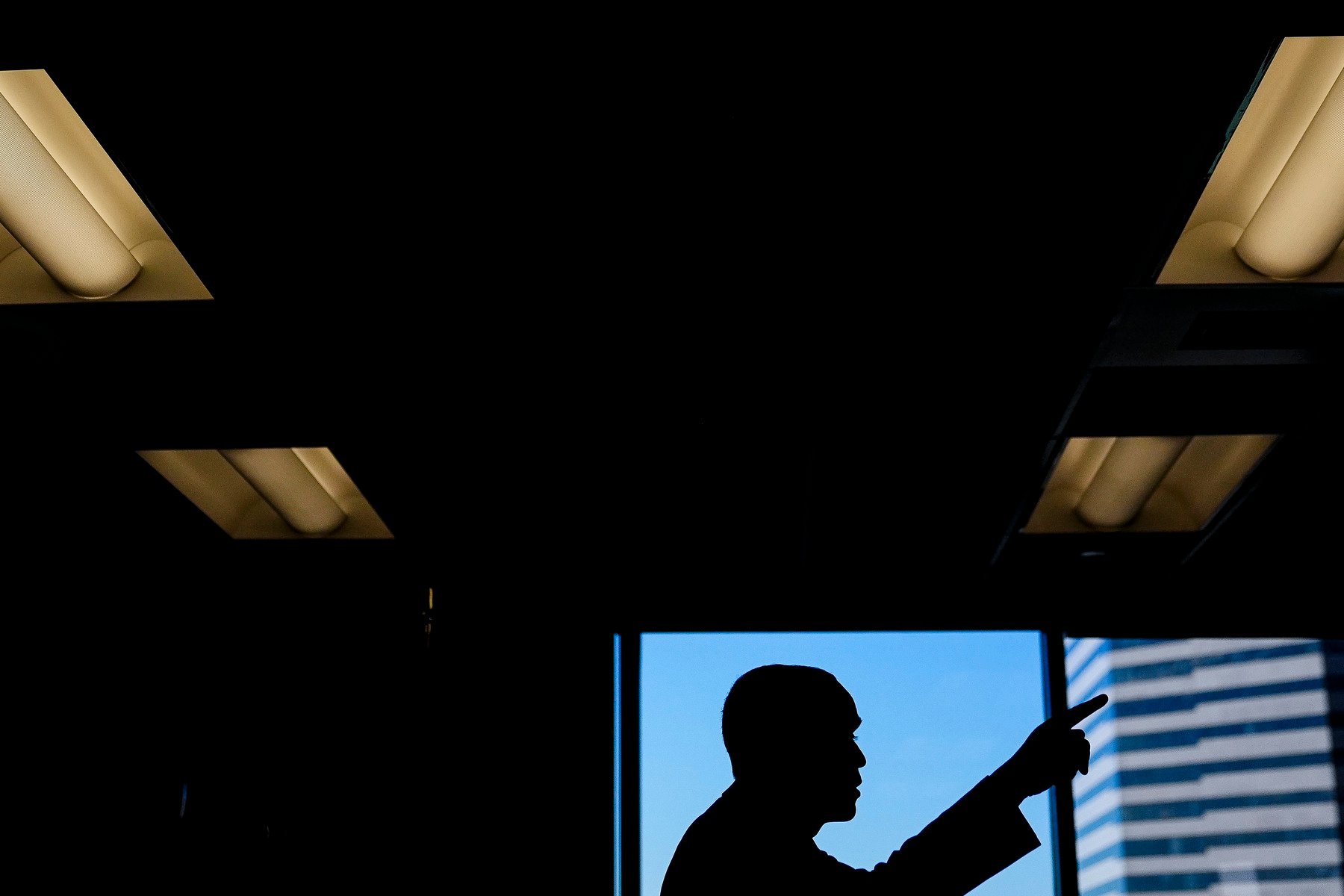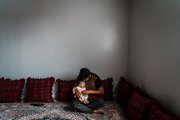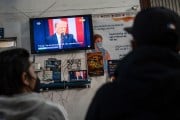Sometime around the end of July or the beginning of August, a Venezuelan immigrant who asked to be identified only as Monica expects to give birth to a son or daughter in South Carolina. That child, she said, “will be a citizen of nothing.”
The Venezuelan immigrant and her partner arrived in the United States in 2019 under the Temporary Protected Status program for Venezuelans as the country faced economic and political crisis and quickly applied for permanent asylum to make the United States their new home.
While waiting for an interview with immigration officials for the heavily backlogged program, Monica and her partner settled in South Carolina and found work. Six years after they arrived in the United States, she became pregnant. Twelve weeks into her pregnancy, Monica said the couple are consumed with worry about the fate of their child’s citizenship, fearful that the Trump administration’s new policy on birthright citizenship and Venezuela’s ongoing troubles and lack of diplomatic ties with the United States will leave their family in limbo.
“I don’t understand why my child wouldn’t be able to have the same rights as other children born here, both children of immigrants and not,” said Monica, who asked to keep her identity hidden out of fear that her family’s petition for asylum would be negatively impacted by her participation in the lawsuit. “I ask myself, What can we do? My child will be stateless… He’ll be a citizen of nothing.”
-
What is birthright citizenship?
-
What is birthright citizenship? The 19th Explains: Birthright citizenship and Trump’s order to end it
Monica is one of five pregnant women who joined a lawsuit filed in federal district court in Maryland challenging the constitutionality of the Trump administration’s executive order seeking to end birthright citizenship. The lawsuit was filed by the Institute for Constitutional Advocacy and Protection at Georgetown Law on behalf of the five women and two immigrant advocacy groups, CASA and the Asylum Seeker Advocacy Project (ASAP).
The lawsuit is one several filed across the country challenging the Trump administration’s order. It would exclude two categories of infants from the right to U.S. citizenship: infants born to a mother who is unlawfully in the country and a father who is not a citizen or permanent resident, and infants born to a mother who is authorized to be in the country for a temporary period of time and a father who is not a U.S. citizen or permanent resident.
The latter group includes, but is not limited to, people in the United States with a work, student or tourist visa.
The order would impact any infants born after February 19 and would in effect deprive them of legal documents such as Social Security cards and U.S.-issued passports.
The lack of specificity in the executive order has created confusion among families and lawyers about who exactly would be impacted. The order mentions only infants born to a mother and a father, leaving unclear the fate of children born to a single or widowed mother, or to a queer couple in which the nonbirthing parent is a U.S. resident or citizen.
The order doesn’t wholly define temporary status, meaning that immigrants covered by a wide range of visa programs are awaiting more information to find out if they are impacted.
-
The executive order:
-
The executive order: Trump signs executive order ending birthright citizenship
“These are examples of the kind of uncertainty and the kind of, really, lack of thought that went into the issuance of this executive order. Unfortunately, there are just a lot of unknowns, because the executive order is attempting to undo hundreds of years of American history,” said Rupa Bhattacharyya, the legal director at the Institute for Constitutional Advocacy and Protection at Georgetown.
As he signed the order, “Protecting the Meaning and Value of American Citizenship,” from the Oval Office hours after taking office, Trump said he believes his administration has “very good grounds” on which to defend the policy.
Trump’s Justice Department is expected to make the case that a reinterpretation of the 14th Amendment, specifically the line that says “all persons born or naturalized in the United States, and subject to the jurisdiction thereof,” allows the administration to exclude newborns who it doesn’t consider under its jurisdiction.
Other lawsuits challenging the law include one filed by the American Civil Liberties Union (ACLU) and several of its state branches on behalf of three immigrant advocacy groups, arguing that the order violates the Constitution and would deny impacted infants basic health care and nutrition.
Another lawsuit, filed by the Lawyers for Civil Rights and two Massachusetts-based immigrant advocacy groups, argues that the policy would essentially strip citizenship rights from newborn infants and their parents and that is akin to punishment and unconstitutional. The lead plaintiff is a pregnant woman who is due in March and seeking asylum.
The attorneys general of 18 states and two cities, San Francisco and Washington, D.C., are challenging the order in federal district court in Massachusetts, arguing that neither the president nor Congress have the authority to end a right guaranteed by the Constitution. Four more attorneys general filed a similar lawsuit in the Western District of Washington.
In the meantime, Monica says that she and other expecting parents like herself will remain worried and confused about the fate of their children’s immigration status.
“Now that I’m 12 weeks, this is really difficult for me. When I should be focused on my baby being healthy, we are stressed, anxious and depressed about this situation — that my child may not be able to become a U.S. citizen,” she said during a call with reporters Wednesday shortly after the lawsuit was filed.
-
Read Next:
According to court documents, Monica and her partner previously worked as a physician and environmental engineer in Venezuela. In the United States, they have sought work as a house cleaner and in construction. On Wednesday, Monica said that she and her partner have lived according to the law, working and paying taxes.
“Now that it’s been six years, we’ve decided to become parents. Life goes on, and this is something that is important to us. We feel stable in this country now,” Monica said, adding that the asylum program’s backlog could leave them waiting for another decade for a permanent decision.
It would be hard for Monica and her partner to seek Venezuelan citizenship for their child because the Venezuelan government does not have an embassy or consulate in the United States.
Conchita Cruz, co-executive director of ASAP, said that for other asylum seekers, making contact with the consulates of their country of origin could risk their safety or put their asylum claims in jeopardy.
Another plaintiff in the lawsuit, a pregnant woman who asked to be only identified as Liza, immigrated to the United States from Russia alongside her partner and petitioned for asylum. The couple says they would face persecution if they return to Russia and therefore cannot safely petition for Russian citizenship for their child, who is due in May.
Federal agencies have until February 19 to issue public guidance about how they will implement the policy. It’s possible that a court will intervene before that date, pausing enforcement while a long legal battle ensues.
In the meantime, uncertainty looms large among many expectant immigrants.
“The executive order has caused a lot of confusion for a lot of families like mine,” Monica said. “People who are here under asylum applications or TPS — will this really apply to us?”








